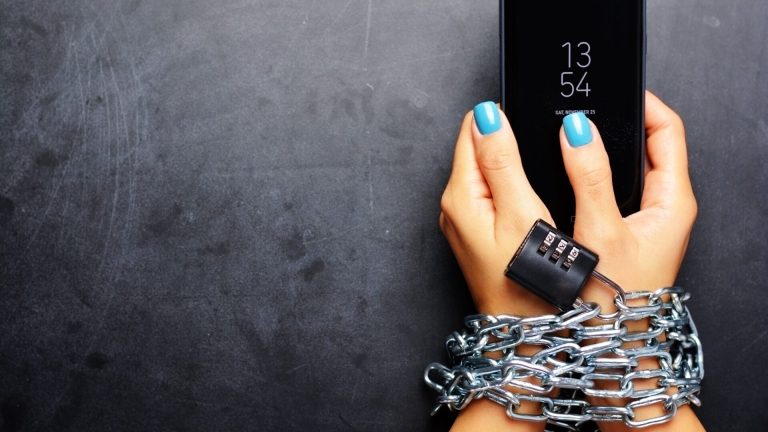Studies show that almost all men experience erectile problems during their lifetime. If it happens from time to time, you don’t necessarily need to worry, but if erectile dysfunction is persistent, it’s definitely worth seeking help.
“When the tap drips, a plumber is called. If the car stalls, you go to the service station. If there’s pain in the knee or if you’ve developed a sexual disorder, you go to the doctor,” says andrologist Dr Kristo Ausmees.
He notes that untreated erectile problems can cause stress, affect self-confidence and lead to relationship breakdowns. In addition, difficulties in achieving or maintaining an erection can be a sign of a medical condition that requires medical intervention and treatment.
What are the most common causes of erectile dysfunction?
Dr Ausmees explains that erectile problems are broadly divided into three groups: lifestyle-related erectile problems, erectile problems caused by mental or psychogenic factors and organic factors.
Lifestyle factors are, of course, tobacco, alcohol and other substance abuse, physical inactivity and the use of medicines. On the mental side, Ausmees cites problems in relationships, stress and fatigue, as well as depressive or socially poor environments.
The organic causes of erectile dysfunction are vascular, i.e. health problems related to blood supply (e.g. high blood pressure), hormonal and neurogenic, i.e. diseases related to nerves. Prostate-related causes, such as prostate enlargement or inflammation of the prostate gland and surrounding tissues, should also be mentioned.
Does the patient believe the doctor?
Asked whether men who come to see an andrologist can already guess what might be causing their concerns, Dr Ausmees says that patients are generally very smart, except that often Dr Google helps them misdiagnose themselves.
“Unfortunately, it comes as no surprise to patients that various health problems, including those related to erections, are often caused by their own lifestyle – smoking, obesity, lack of exercise, alcohol can all be contributing factors. If you still smoke a pack a day, have a few beers, don’t bother to exercise and watch TV at home instead, I would like to say to you, dear friend, that if these things were different, you would probably not be sitting in a doctor’s surgery and you would not have chronic illnesses, you would not be taking medication and you would not have sexual dysfunction. Or even if there were, they would be much milder and the treatment would be much more effective and cheaper than it is now,” muses Ausmees.
He points out that a very large number of people who go to the doctor still understand the doctor’s explanations and the link between cause and effect. Many also want to change their behaviour. Unfortunately, the realisation may be a little late, but it doesn’t turn back time.
If a young man with erectile problems sees a doctor and quits smoking and drinking less alcohol, he is more likely to have better sex life. This is, of course, if they are lifestyle related. Unfortunately, however, it is nature’s way that (erectile) problems caused by lifestyle factors do not usually manifest themselves in youth, and therefore the realisation of lifestyle changes may arrive too late.
“If a man of about 50-60 comes to the doctor with a plan to change his lifestyle, stop smoking, stop drinking beer, start exercising more, it is unlikely to completely solve all his health problems. But it can reduce further aggravation and is therefore welcome,” explains Ausmees.
He adds that in younger men, erectile problems are also often linked to the use of medicines to treat an underlying condition, such as diabetes or blood pressure medicines. Another group of drugs that can affect sex life are heartburn relievers or medicines that reduce stomach acidity.
Diabetes, high blood pressure and hyper-acidity in the stomach are largely lifestyle diseases, and if a person has been on medication to control these diseases for, say, twenty years, all the side effects cannot be completely reversed.
“Üks asi viib sageli teiseni ja nõnda probleemid kahjuks aina süvenevad. Noorele inimesele aga annad nõu, ta muudab elustiili ja peaaegu kõik on võimalik. Vanemate puhul muudab see midagi totaalselt väga harva. Küll aga on väga oluline ikkagi üks lihtne tõde – kaalulangus muudab enamasti tervise ikka paremaks. Seda ka vanemaealistel,” rõhutab dr Ausmees.
Could the cause for bedroom issues be mental?
According to Ausmees, depression or stress alone is rarely the cause of erectile dysfunction. Sexual problems are usually a combination of several things, and again it comes down to lifestyle factors.
Ausmees refers to the ‘dead circle’: first there is stress, then a drop in libido, followed by a loss of self-esteem, then negative thoughts, followed by problems in a relationship, which in turn leads to erectile dysfunction.
He acknowledges that psychiatrists refer quite a number of patients to male doctors. “After treatment, depression is controlled, the man starts to see nature and life in a more colourful way, and then he starts to pay attention to other aspects of life, including sexual problems. If the mood is good, but libido is low and sexual dysfunction is tormenting, that can be dealt with nicely,” says Ausmees.
What is the treatment?
According to Dr Ausmehe, sometimes all that is needed to eliminate erectile dysfunction is to identify and treat the underlying condition. In some cases, specific erectile dysfunction medication or other direct treatment may be necessary.
The main and primary method of treatment is medicine. According to Ausmees, it is nowadays quite affordable and, more importantly, effective. The number of side-effects has been reduced to a minimum, there is the possibility of prescribing different doses and there are even medicines for daily use.
Generally, the initial treatment is prescribed for 30 days and, depending on the outcome, either stopped or, if necessary, continued with a new course. There are also those who have to stay on medication on a daily basis.
Ausmees points out that erectile dysfunction pills may have a positive effect on blood pressure as one side effect. “There have been cases where a man gets erectile dysfunction treatment, and as a result his blood pressure, which was a little too high before, drops and the anti-hypertensive drugs can be stopped. Maybe, with luck, several good things in one pill,” says Dr Ausmees, adding that some of the newer preparations can also help a little with urinary problems.
Do men have the courage?
There is a general perception that men will only go to the doctor’s office as a last resort, and they are particularly embarrassed to talk about their sexual and erection problems. Dr Ausmees says that of course patients should be more courageous and more likely to see doctors. Especially men to a male doctor. But the problem in Estonia is where do you go when the queues are long, because there are no doctors.
The story that the Estonian man does not dare to seek help with men’s problems, and when he does come to the office, he keeps his eyes down, is not true according to Ausmees. The mindset has changed and it is realised that our health is the only thing we can change or be sensible about, and if there are problems, they must be solved.
“When the tap drips, a plumber is called. If the car stalls, you go to the service station. If your knee hurts or you have a sexual disorder, you go to the doctor,” says Ausmehe, who has long understood that excessive embarrassment can take a nasty toll.
Dr Ausmees also advises both men and women that in a couple relationship you can and should always help and support each other. “If your partner notices anything unusual, it should always be mentioned. If a woman sleeping next to her husband notices that he snores at night or goes to the toilet suspiciously often, it should be pointed out. If a partner says, “Honey, turn up the volume on the TV” every night while watching TV, it’s not a good idea to keep it quiet. Maybe you have a plug in your ear, or maybe your hearing is really getting worse,” she says.
Despite what people say, Ausmehe says that medical care is actually very accessible in Estonia and that modern medical facilities are generally very good for most diseases. “It is definitely worth going to the doctor if you have a problem. And you should certainly not be afraid of a doctor. You should treat your doctor as your own person – you should talk to him or her honestly and then there is hope that your problems will be solved,” Dr Ausmees advises.
Find over 8500 ways to take control of your health and improve your well-being on Stebby HERE.






